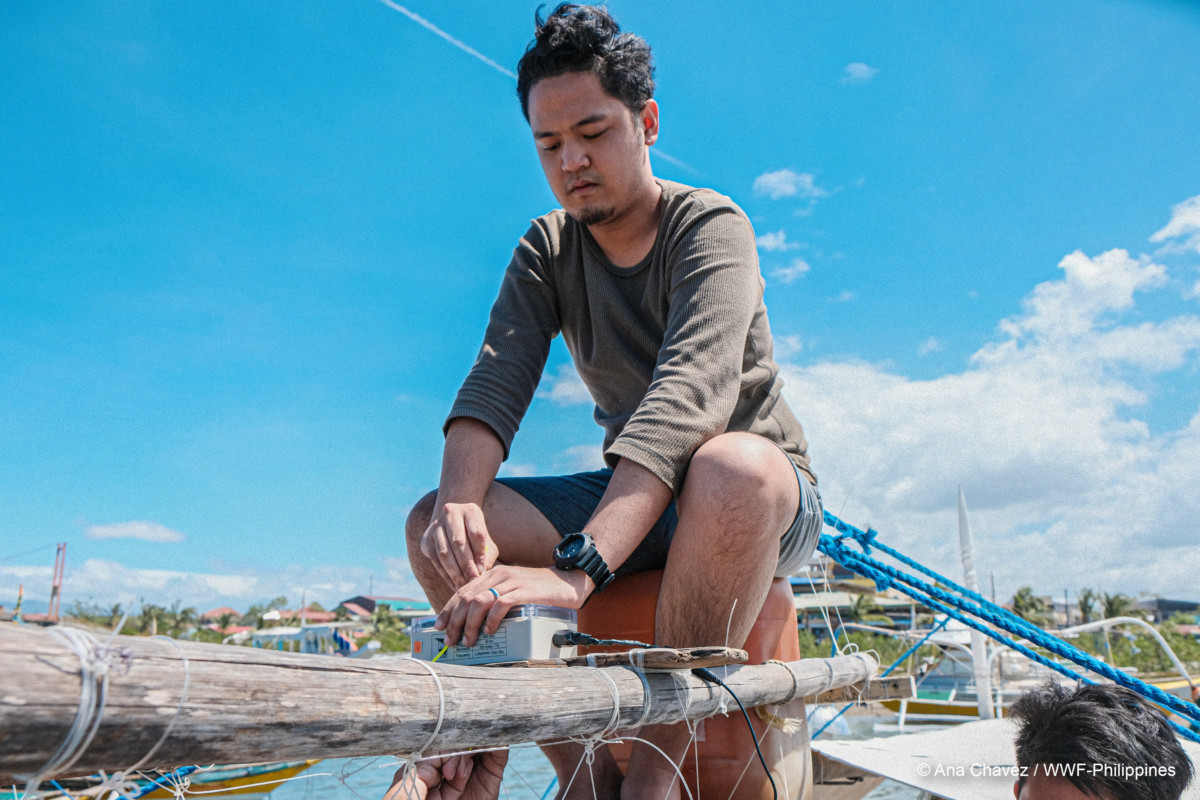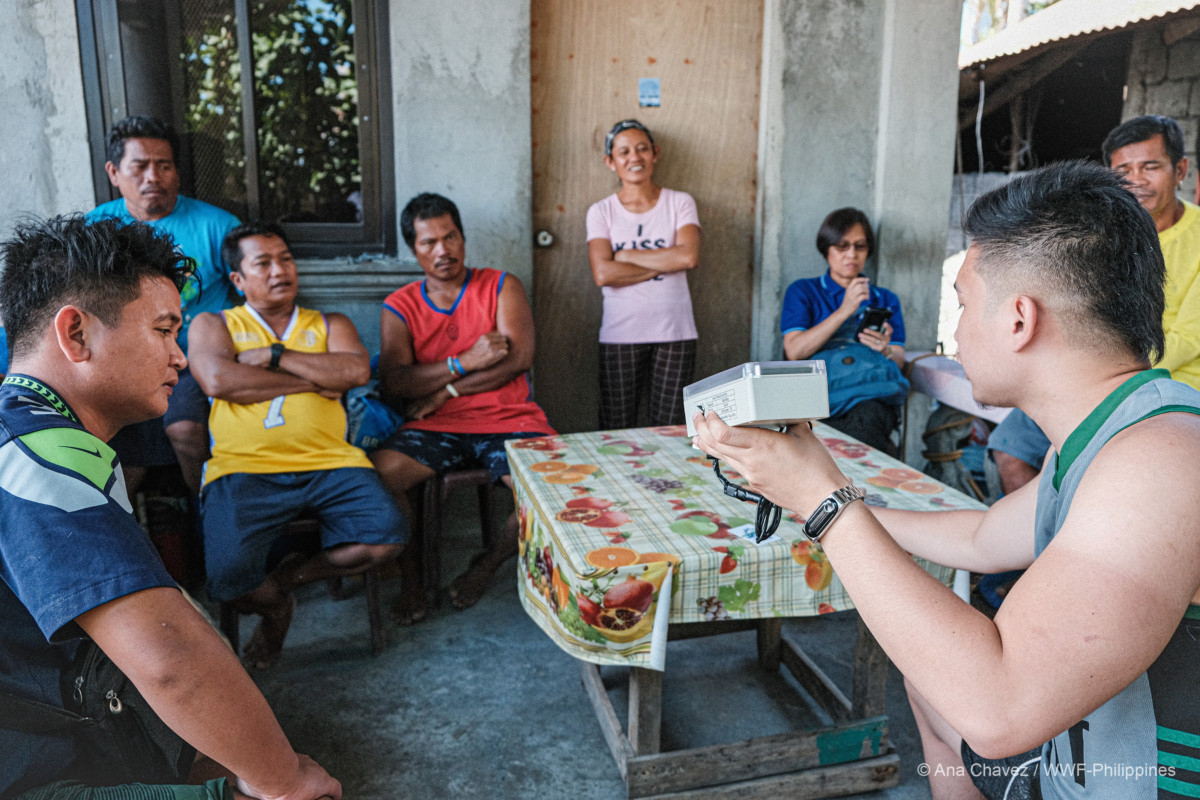WWF-Philippines, groups welcome new BFAR policy on fisheries traceability
November 5, 2021

BA staff from Futuristic Aviation and Marine Enterprise (FAME) climbs atop a boat to install a GPS device. A municipal catch documentation and traceability system relies on technology and the participation of fishers and local governments alike to monitor fishery products.
Photograph © WWF-Philippines / Ana Chavez
World Wide Fund for Nature Philippines (WWF-Philippines) welcomes a new policy from the Bureau of Fisheries and Aquatic Resources (BFAR) that seeks to streamline municipal catch documentation and vessel monitoring systems (CDTS) across the Philippines to improve the country’s management of marine resources.
BFAR Fisheries Office Order No. 127, entitled “Voluntary Guidelines on the Establishment of a Municipal Catch Documentation and Traceability System for LGUs to Manage Fishery Resources” is the first of its kind to directly address the issue of traceability in Philippine fisheries.
The policy encourages the development of CDTS on a local level, to aid in the management of fishery resources.
“Environmental groups have been lobbying for this policy together with BFAR for a very long time. Local governments have an important role to play in managing our fisheries. This new policy will help them perform their role better,” said WWF-Philippines Technical Fisheries Officer David David.
The new policy was passed in order to address gaps in the traceability of fishery products. Prior to the passing of the new policy, local governments lacked guidelines and standards with which to develop their own vessel monitoring systems.
Conservation organizations like the WWF have lobbied for the passing of policies on CDTS. Together with RARE, USAID Oceans and BFAR, WWF-Philippines has assisted fishing municipalities with the establishment of their own CDTS.
Traceability is an important aspect of sustainable fisheries management, as it allows authorities to check whether or not fish are being caught within designated fishing grounds and within the confines of the law. Good traceability measures combat Illegal, Unreported, and Unregulated (IUU) fishing - illegal fishery practices that have contributed to the depletion of fish stocks.
These measures are also good for food safety and empower consumers to choose sustainably-sourced fishery products. Through effective vessel monitoring measures, customers are assured that the fishery products they are buying are coming from registered distributors, and that they have been handled and processed well.
When coupled with legislation that protects marine resources, these measures can help ensure the protection of the country’s fisheries.
The policy issued by BFAR lists the roles to be performed by stakeholders in the fishery sector, from local governments to the fishers themselves. The policy also lists the responsibilities of different government agencies in supporting local government units (LGUs) with the rollout of their own CDTS.
The policy also encourages LGUs to adopt their own catch documentation systems, as per the guidelines it lays out. While LGUs are important to fishery management, the varying circumstances of communities across the country have proven a constant challenge in pushing sustainability measures nationwide.
While challenges remain in the rollout of effective CDTS, David holds that the passing of this latest policy is a good step forward.
“The next challenge will be to help LGUs comply with the guidelines stated in this new policy. This will take a lot of work and the road to sustainability is still a very long one, but this latest milestone is a positive step for the protection of our seas,” added David.
"We welcome the issuance of Fisheries Office Order No. 127 by the DA BFAR to enjoin local government units and other national government agencies to monitor fish catch in municipal waters and determine where they end up after being caught. This will hopefully lead to better collection of needed data for effective fisheries management and prevent illegal, unreported and unregulated fishing (IUUF),” shared RARE Senior Manager for Policy and Government Engagement Dennis Calvan.

Fishers are taught how to use their new GPS devices, and are drilled on how to best document their catches.
Photograph © WWF-Philippines / Ana Chavez
For more information, please contact:
Joann P. Binondo
Overall Project Manager, Sustainable Tuna Partnership (STP)
jbinondo@wwf.org.ph
For media arrangements, please contact:
Ms. Chezka Guevarra
Public Relations, Media, and Events Assistant Manager
09276566436
cguevarra@wwf.org.ph
